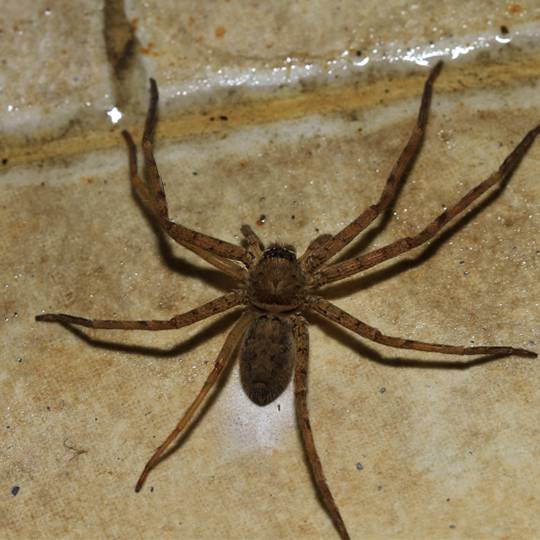
There are thousands of species of spiders (araneae) around the world—some more dangerous than others. Most are able to produce a strong, elastic-like silk to form webs that they use to suspend themselves and trap their prey, including insects, other spiders, and any other small animals that they can capture. Rather than spin webs, some spiders take up residence in burrows or outdoor crevices.
Spiders can enter the home through any opening in or around windows or doors. They may also get inside if they’ve found their way into an outdoor item—such as furniture—that you then bring indoors. They are usually looking for food, so they will find a dark, quiet area, like a corner in your home, where there may be other insects to eat.
Signs of a Spider Infestation
Chances are you’ve seen the signs. Eight legs, two body regions, dangling from an intricately spun web. Most spiders are harmless and, in fact, can help you get rid of other bugs by catching them in their webs. However, many believe the best place for a spider is not inside the house. This may come from a fear or simply not wanting webs taking over ceilings and corners of any indoor and outdoor living space.
Venomous Spiders
There are a few species of spider that can pose a threat to your health. The brown recluse and black widow spiders are venomous, but they will only bite if they feel threatened. However, they’re more likely to run and hide than defend themselves.
Brown recluse spider: chocolate brown with a violin-shaped marking on their back. They get their name from their shy nature, which is why they prefer more quiet spaces such as closets, basements, and outdoor woodpiles to reside. Their bites are not always painful, but the venom can cause a severe, delayed allergic reaction, particularly in children and the elderly. The symptoms of a brown recluse spider bite include rash, chills, fever, nausea, and fatigue. The affected area can develop gangrene and fall off. Sometimes, the bite can even kill.
Black widow spider: distinct red hourglass shape on the abdomen. Their bite contains a neurotoxin that causes immediate pain at the site. Pain in other areas follows, as well as nausea and paralysis of the diaphragm which inhibits breathing. Only bites from female black widows are potentially dangerous—adult females, in particular. Children, elderly, and sick people are at the greatest risk, but for most people, the bite is not fatal.
Spider Prevention
There are ways of repelling spiders naturally that you can easily make at home. Peppermint essential oil, white vinegar, and citrus have been found to deter spiders. Fill a spray bottle with a mixture of water and peppermint oil or vinegar and spray the cracks and crevices around your home where spiders may try to come in. You can also clean corners and other spots spiders have been seen with a citrus-scented product to keep them from this area. Keeping your home, porch, and yard tidy is another way to prevent spiders from hiding and getting too comfortable.
Need Help with Spiders?
Call Cardinal Lawns today at 614-808-4446 and let's talk about how we can help treat for Spiders and other common Ohio lawn pests.
Get a Free Quote